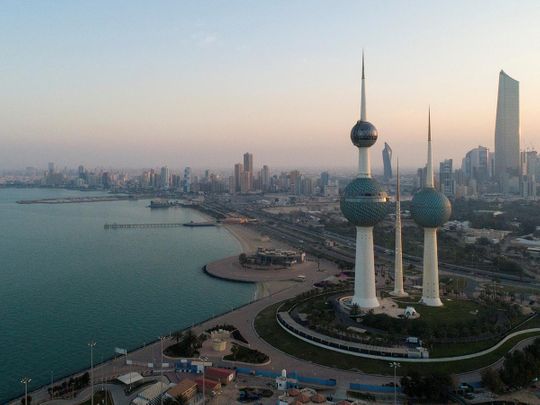Abu Dhabi: The classic Gulf drama series were revolving in one orbit and presenting works in a fixed format that satisfies the censor and does not shock the viewer, even if that forced the drama to deviate from reality and harm the credibility at times, columnist Raed Al Baghli writes in Al Watan newspaper.
“But in ‘No Music in Al Ahmadi’, a historical drama exploring the events in the city of Al Ahmadi, and how it reflects the Kuwaiti lifestyle and traditions through 1940 till 1970s, and ‘Umm Haroun’, a hit TV series for promoting religious diversity in the Gulf, the real contradictions and natural differences that creates a balance in any society, were present,” Al Baghli said.
He added: “We have seen the church and the mosque, the Muslim and the Jew, the Shiite and the Sunni, the religiosity and the class, the wine and dates, the dancing and prayer, the wealth and poverty, the servant and the master, the loss and love, so we were nostalgic to a past that most of us did not live, and the astonishment of colliding with a reality that most of us did not know.”
Al Baghli has been writing for quite some time now the phrase “crisis of text” has grown to our ears, which indicates the existence of a real crisis, that casts a shadow on Gulf drama.
“However, a breakthrough was made with the emergence of some real dramas that rely on sober texts, the last of which was shown last Ramadan and achieved remarkable success, including ‘No Music in Al Ahmadi’, adapted from the novel of the same name, published in 2016 by the novelist Mona Shammari,” Al Baghli said.
He added the drama revolved around a family that lived in the Al Mirqab area, south of the capital, Kuwait, then moved to Fahaheel, which is located near the modern city of Ahmadi, which was built by the British in the latest style and attracted elite foreign and Arab families in Kuwait.
“It raised important social issues, some of which were not covered, such as the coexistence of different sects, the existence of multiple places of worship in Kuwait, the intermarriage of Kuwaitis with foreigners, and the immigration of Saudis to Kuwait.
“What is noteworthy in the work is not his approach to critical issues that Gulf drama has avoided for decades, but rather the prevalence of them.
“The TV drama series reviewed the presence of Iranians as a main social component in Kuwait and the coding of their Shiite identity. It boldly introduced the Bedouin when it presented the character of Abu Mashari as a smuggler of antiquities, and showed them as an important social component, which has long been absent from the drama series, with their presence being limited to Jordanian Bedouin series.
“This was the second work of the writer to show this category in a bold pattern after her work Black Kohl White Heart, which was shown in 2017, and shed light on children with Down syndrome and the ease of luring them and then rape them.”
Al Baghli said the TV drama series showed the Omani in the heart of the Kuwaiti house as a servant, whom fell in love with his Kuwaiti lady, for whom marriage was not destined because of the social and class differences inherent at the time.
“Perhaps the series Umm Haroun, which is also revolving in the same period of time, dared to set free the classic Gulf drama, as it dealt with important historical issues, namely the presence of Jews in the region and their effect on the demographic structure and religious thought, the relations between Muslims, Christians and Jews, including affairs ending in marriage, the grievances and discrimination that the Jews suffered during the height of the Zionist movement, and then the racism against them in Israel, to which they moved after they were expelled from their homeland,” he said.
Al Baghli concluded today we are dazzled by texts at the level of No Music in Al Ahmadi and Umm Haroun, despite the harsh criticism that they faced. “Our taste has missed this kind of high-end and serious drama series.”

